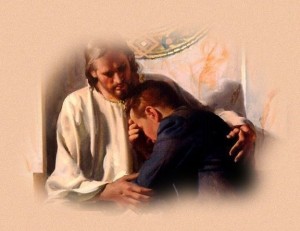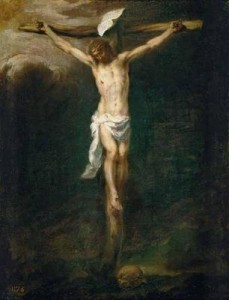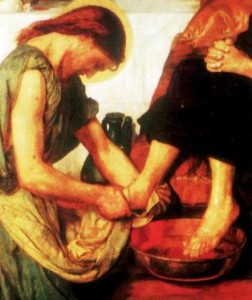An Advent Prophetic Word
When Enoch was 65 years old, he became the father of Methuselah. After the birth of Methuselah, Enoch lived in close fellowship with God for another 300 years, and he had other sons and daughters. Enoch lived 365 years, walking in close fellowship with God. Then one day he disappeared, because God took him.
Gen. 5:21-24 (NLT)
Genesis five shares a short story about a man named Enoch and his unusual and distinctive walk with God. What makes Enoch’s walk powerful was his determination to commune with God no matter how badly the culture around him was morally deteriorating. Like Enoch, the church finds itself in a perilous place: a decadent culture challenging the church to dare live its commitment to Biblical truth (2 Tim. 3:1-5). We like Enoch must be determined in our hearts to walk with God no matter how bad things become.
Many in the church make excuses, “It’s too hard to walk in the Spirit, we just can’t do it in the midst of all these problems.” Yet, the Bible speaks powerfully, “God’s grace is sufficient in all weakness” (2 Cor. 12: 1-10). Grace is available always, in every place, at any time, in the all-sufficient person, Jesus Christ (John 1:17). Imagine, Enoch walked with God never knowing the power of the Cross, no experience of the Holy Spirit, no benefits of the covenant, no grace in the sacraments, no sweetness of fellowship with other believers, no spiritual encouragement through the church, etc., yet he continued in sweet communion with our most loving and gracious God.
No matter how bad our circumstances are, grace is available to respond like Jesus in every life situation (2 Cor. 9:8). Grace is available for all our current circumstances no matter our tight funds, no matter our emotional need, no matter how frustrating our lives: God gives us grace to walk in the Spirit to respond like Jesus in every life situation (Gal. 5:16-26). Our circumstances are never bigger than God’s grace (2 Cor. 12:1-10).
St. Thomas More declared, “The times are never so bad that a good man cannot live in them.” The Apostle Paul reminds us that when sin increases, grace abounds the more (Rom. 5:20).Enoch tapped into that grace and walked with God. To walk with God means to talk with God. Their communion with one another was intimate and personal. Enoch knew God’s heart and God was blessed by his love (John 17:24). The Lord wanted to be with Enoch,”God took him away” (Gen. 5:24), thus the Lord allowed Enoch to by-pass death and brought him straight into his presence.
Not only did Enoch walk with God when all others were rejecting the Lord: he walked intimately and powerfully in constant communication with his heavenly Father (Heb. 11: 5-6). To walk by faith and please God with our attitude means to catch the heartbeat of God by believing and obeying his word not because we ought to, but because we want to. The writer of Hebrews commends Enoch because his heart of faith pleased God (Heb. 11: 5-6). Faith is a gift from God and a choice of our hearts enabling any child of God to believe that the Father, Son, and Holy Spirit are faithful, sufficient, and present for every life circumstance. Maintaining faith is a battle of the heart, staying fixed on the goodness and faithfulness of God. Enoch maintained his faith in a culture that had chosen to reject and blaspheme God. In this, Enoch pleased God’s heart. Enoch heard God’s voice thereby knowing God’s heart thereby he was able to share God’s word. Enoch did not hoard God’s word unto himself, Enoch taught God’s heart to a people who were constantly resisting God’s grace. Enoch was willing to share a message that was not going to be heard–a message of judgement:
Now Enoch, the seventh from Adam, prophesied about these men also, saying, “Behold, the Lord comes with ten thousands of His saints, to execute judgment on all, to convict all who are ungodly among them of all their ungodly deeds which they have committed in an ungodly way, and of all the harsh things which ungodly sinners have spoken against Him.â€
Jude 14-15 (NKJV)
By God’s grace, Enoch walked with God, heard his heart, knew his ways, and communicated God’s truth in a decadent and decaying culture.
Three hundred years is a long time. What kept Enoch walking with God for three hundred years? He had an awareness of judgment coming. He had a sensitivity to the ungodliness of the age. And he drew closer to God as the reality of these things pressed in upon him. The way to graph it would be to make a circle, space these three items around the circle, and then show by arrows that each one influenced the other. The more Enoch was aware of the judgment, the more sensitive he was to sin. The more sensitive he was to sin, the closer he wanted to walk with God. The closer he walked with God, the more clearly he saw that judgment was necessary. Or the other way: the more clearly he saw the judgment coming, the closer he wanted to walk with God, and the closer he walked with God the more sensitive he was to ungodliness.
If you keep close to God, you will keep from sin. But if you sin persistently, you will fall away from God. Then you will rename the sin. You will not talk about pride, the great sin; you will call it “self-esteem,” “self-worth,” or what is “due to me.” You will not talk about gluttony and materialism; you will talk about “the good life.” You will not talk about disobedience; you will talk about “shortcomings.” You will not talk about the Ten Commandments and your violation of them; you will talk about your “mistakes.” It is only when you draw close to God that these things will become increasingly sinful in your sight. Only then will they work together to make you a preacher committed to calling men and women to repentance and faith in Christ before the judgment comes.
James Montgomery Boice cited in Feed My Sheep: A Passionate Plea for Preaching, 2nd edition (Reformation Trust Publishing, 2008).
We too can trust Christ and find him faithful in the midst of morally decadent culture. First, we walk with God by allowing the prevailing power of the Holy Spirit to subdue our sinful nature. Second, we trust God’s atoning work in Christ that our sin has been forgiven and forgotten. We stop striving in our best efforts to be accepted with God and we trust Christ’s supreme effort as our means to acceptance with God. Third, we abide in constant, conscious presence of Christ. We abide in Christ by holding steady in his presence trusting God’s promises by faith irrespective of the challenges, trials, and tribulations of our lives.
‘And Enoch walked with God’ (Gen. 5:22,24), that is, he kept up and maintained a holy, settled, habitual, though undoubtedly not altogether uninterrupted communion and fellowship with God, in and through Christ Jesus. So that to sum up what has been said . . . walking with God consists especially in the fixed habitual bent of the will for God, in an habitual dependence upon his power and promise, in an habitual voluntary dedication of our all to his glory, in an habitual eyeing of his precept in all we do, and in an habitual complacence in his pleasure in all we suffer.
George Whitefield, Selected Sermons of George Whitefield (Oak Harbor, WA: Logos Research Systems, Inc., 1999).
Fourth, we are committed to continual growth in the knowledge and love of God (2 Peter 3:18). We commit to grow in Christ by reading his word, praying his will, trusting his promises, receiving his grace in the sacraments, fellowshipping with his servants, and serving his church. God is raising up Last Days Enoch’s who will walk with God in the midst of a hostile, apathetic, and immoral culture.








